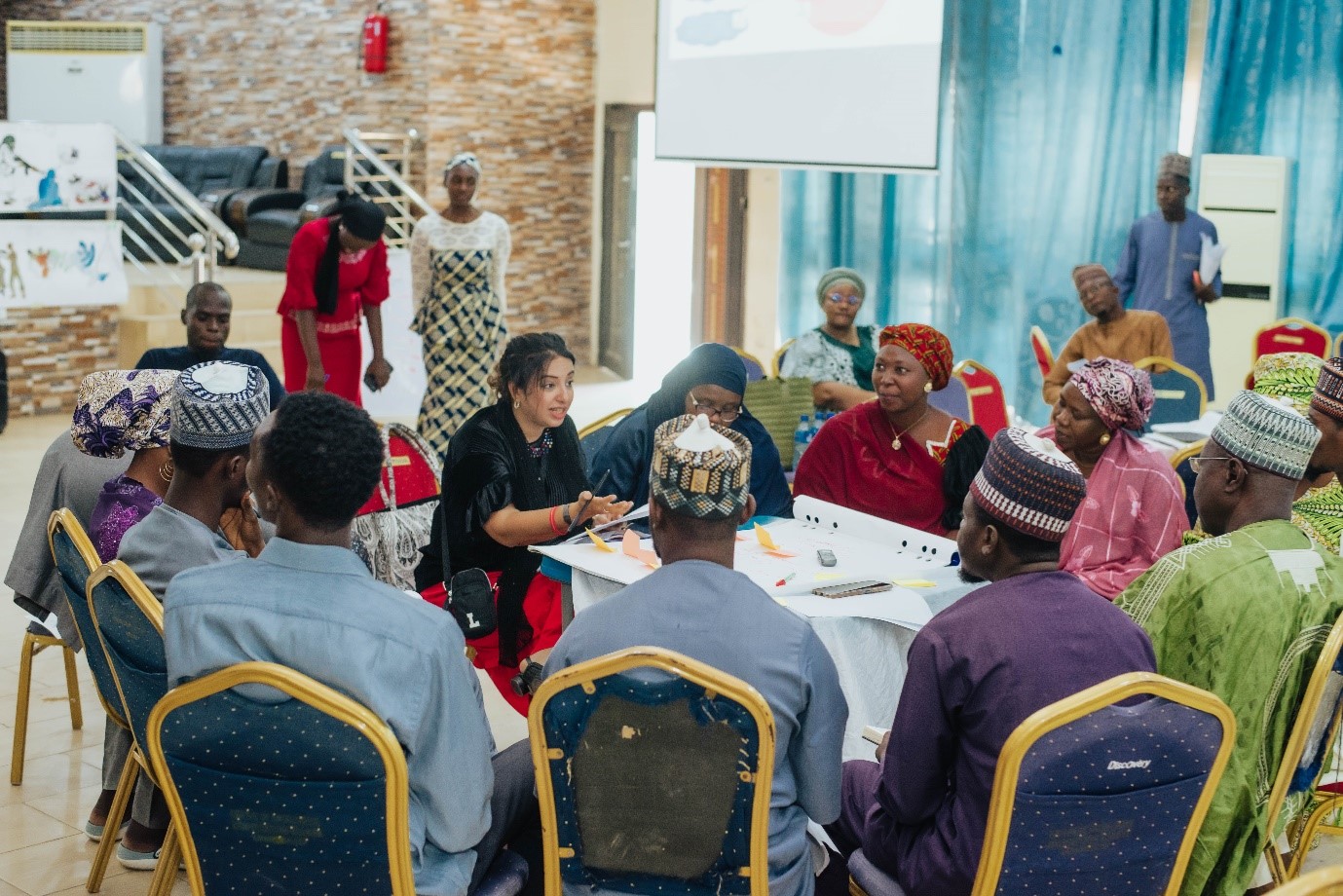
Laila Shahzad, a postdoctoral fellow in peace-centred development at NRI, recently visited Nigeria. In this article, she reflects on her first visit to the West African country and NRI’s efforts to support local initiatives for social change and peacebuilding in the Lake Chad region.
In November 2024, I had the unique opportunity to engage with local people in Maiduguri, northeastern Nigeria as part of the Borno Citizen Lab events of the Prosperity and Peace Pathways project. The Project’s events in Maiduguri aimed to advance pathways toward human rights and sustainable livelihood solutions by engaging local Nigerian communities and other stakeholders to co-create locally valid roadmaps for peace and development. I witnessed first-hand how arts-based research can become a powerful tool in highlighting conflicts and advocating for local communities’ rights to resources, livelihoods, and peace.
As I reflect on my first visit to Nigeria, I am struck by the complex layers of resilience and challenges that define the country. From the harsh drylands of Maiduguri to the green landscapes of Abuja, Nigeria is a land of contrast – one that carries a rich cultural heritage while navigating the struggles of conflict, development, and human rights abuses.
The Prosperity and Peace Pathways Project: bridging science, society and the state

The Project recognises the importance of inclusivity, ensuring that the voices of local communities are heard in matters of governance, resource management and conflict resolution. Borno Citizen Lab events were organised in collaboration with multiple government and academic institutions across the Lake Chad region. These included the Lake Chad Basin Commission (Chad), the Institute for Peace and Conflict Resolution (Nigeria), Abbasad Initiative for Sustainable Development (Nigeria), University of Diffa (Niger), University of Maiduguri and Bayero University (Nigeria), and University of N’Djamena (Chad). An outstanding feature of the project's approach is the active engagement of citizens from both the government and the community. It emphasises the importance of listening to the people who are directly impacted by conflict and environmental degradation and those who have the political will to drive societal transformation. Engaging with local communities promotes dialogue and co-creation of solutions rooted in local realities. This participatory approach further allows for a more nuanced understanding of the issues at hand, fostering solutions that can lead to lasting peace and prosperity.
As a postdoctoral researcher on the project, I met community leaders, local people, activists, and artists who are dedicated to peace-building and social change. It was inspiring to see how, despite the many challenges they face, from corruption and natural resource degradation to displacement, there is an undeniable spirit of hope and a deep commitment to a better future.
Arts-based research: a vehicle for raising awareness and advocacy
One of the most striking elements of my experience in Nigeria was how arts-based research is being used as an effective tool to address conflicts and raise awareness about the issues facing local communities. Art is not just an aesthetic expression; it is an effective medium for storytelling, for capturing emotions and experiences that may be difficult to convey through words alone.

In context of the project’s Citizen Lab Initiative, arts-based research has proven to be especially effective in highlighting the struggles of communities affected by conflict and resource exploitation. Through visual art, theatre, music and dance, artists were able to express the daily realities of living in conflict zones, stories of Boko-Haram violence and loss of social and economic assets. These artworks serve as a bridge between communities and policymakers, urging them to address the root causes of violence and inequality. A good example was the artwork of a local artist called Ezra Joshua Madaki. His pieces spoke volumes about the exploitation of natural resources, the violence affecting daily life, and the misuse of power. His drawings were not just about presenting the problem, but also about offering potential solutions. The work also highlighted the resilience of the people, and the hope for a future where resources are shared more equitably, and the human rights of all individuals are respected.
Art has the unique ability to communicate complex issues in ways that are both emotional and thought-provoking. In regions where there are limited opportunities for open dialogue, especially about sensitive issues like human rights and natural resource management, art can act as a catalyst for change. By creating a platform for marginalised voices, art helps to raise awareness and amplify the concerns of local communities.
My visit to Nigeria was deepened my understanding of the complex challenges faced by local communities in conflict zones. The Prosperity and Peace Pathways Project and the role of arts-based research reaffirmed that peace and prosperity are not just abstract concepts but must be rooted in people’s lived experiences and voices.
In contexts where conflict and competition for resources have long been sources of tension, good governance is essential for establishing just societies and bringing lasting social change. Participants in the Citizens labs activities affirmed the necessity for good governance as the means to support advocacy for human rights and promote sustainable development. As I left Nigeria, I felt a renewed sense of hope for the future - a future where local people play a central role in their quest for justice, equality, and peace.
The Prosperity and Peace Pathways Project is funded by the UK Research and Innovation and led by Dr Uche Okpara, Senior Lecturer in Climate Change, State Fragility and Conflict at NRI.

